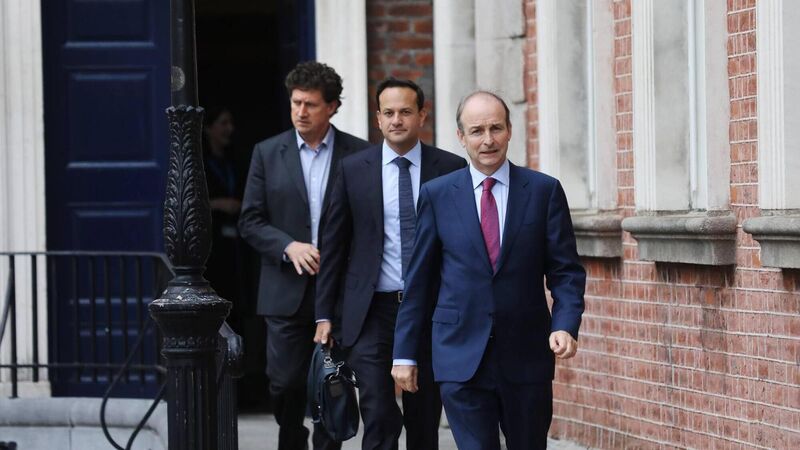Elaine Loughlin: Government adopts the 'three Ds' — dally, deny, delay

Minister for Climate Action, Communication Networks and Transport, Eamon Ryan; Tánaiste, Leo Varadkar and An Taoiseach Micheál Martin who head the three-stool Government has adopted the three Ds tactic to many difficult issues — dally, deny and delay.
Ministers should put a cushion on their Christmas wish lists so they can stop sitting on their hands.
This three-stool Government has adopted the three Ds tactic to many difficult issues — dally, deny and delay.














